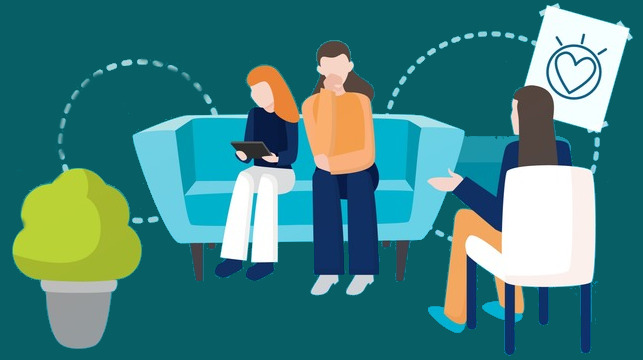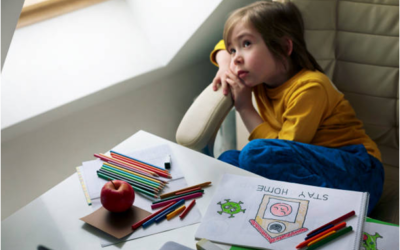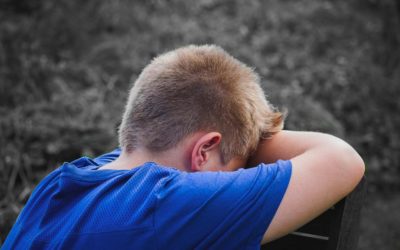Child Psychology
Child Psychology
Becoming parents of a child is the happiest, rewarded and blessed thing for every couple. Seeing your child grow, his or her view towards the world, adoption of changes, mentoring, understanding, teaching new skills is all part of being a parent. But, it’s not quite as easy as you are reading.
As time passes, your child begins to develop. They go through various progressive developmental stages. Environmental, genetic, cultural factors highly impact on child’s development. It’s hard for children to explain what they’re going through, much less to analyze their feelings.
This is where child psychology matters a lot by helping you and giving you priceless information and knowledge.
What is Child Psychology?
The study of the psychological processes of children specifically, how these processes differ from those of adults, how they develop from birth to the end of adolescence and how and why they differ from one child to the next. In short, it is the study of the subconscious and conscious childhood development.
Child psychology is not limited only up to the physical growth of a child, but with their mental, emotional, and social development as well. It is one of the various branches of psychology studied frequently in speciality areas. It predominantly focuses on the mind and behaviour of children from prenatal development through adolescence. Child psychology has gained a lot of importance in this modern-day era.
Significance of Child Psychology:
Every couple wishes to have their child development in the healthiest manner. The behaviour of a child does not symptoms normal or abnormal growth. To understand these differences, a child psychologist guides you the best. Understanding the differences from kids psychologist will help you in adopting the new techniques of parenting. These new techniques may include way and style of communication, connecting with the child, teach their child coping mechanisms for managing emotions, and help their child progress and thrive in each new developmental stage.
Child psychologists identify abnormal behaviour early and help in the prevention of common child behavioural issues like learning, hyperactivity, or anxiety, and help children work through early childhood trauma. Child psychologists do help in diagnostic developmental delays or abnormalities like autism.
Factors influencing Child Psychology:
When you think of influencing factors in child psychology, you may think of how a child grows, such as genetics and personal characteristics. However, development involves much more than the influences that arise from within an individual. Following are the major factors that influence child psychology.
The Culture –
Culture has a huge significance on child psychology and it stays throughout the whole lifespan. This includes a set of values, customs, shared assumptions and ways of living. Culture also plays a role in treating a child, relation with the parents, type of education received and type of childcare provided.
The Society –
The thinking of a child is closely related to the relationship with peers, adults. It also effects on a child’s learning and development. The behaviour, thoughts, thinking process of peers or adults has a huge impact on a child’s mind. Children exactly try to imitate such things. Families, schools, playgrounds play a major role in social influence.
The Socioeconomic status –
Socioeconomic status, often abbreviated as SES plays a key role in child psychology. The factors that come under socioeconomic status are amount and quality of education people have, their earnings, the workplace, standard of living, clothing, behaviour etc. Children with a high standard of living and high socioeconomic status have access to greater opportunities like healthcare, quality nutrition, education, toys, extracurricular activities like sports, drawing, various competitions etc. Such factors have a great impact on child psychology.
Areas of Development Child Psychology:
Physical Development
Physical development in a child is a predictable or known sequence of events. A child holding their head up, rolling over, crawling, walking and running is the natural order of sequence. A child psychologist guides you better in observing your child’s physical development, any abnormalities found the concerned ‘child psychologist near me’ is the best consultant for the same.
Child psychologists observe the growth of a child keenly and verdicts it normal or abnormal. A private child psychologist earlier helps to avoid physical developmental issues that might cause later big problems.
Emotional Development
Emotional development relates to a child’s feelings, understanding and way of expressing their emotions. These emotions are basically joy, anger, sadness, fear. More complex emotions like confidence, hope, pride, guilt rise with child development.
A child may feel difficulty in expressing emotions or understanding what others say. A Child Psychologist can help your child understand and express their emotions in a healthy, positive way. Emotional development highly informs social development, because the way a child feels, understands, and expresses their feelings has a direct impact on their way of interacting with people.
Social Development
Social development is all about how the child develops the values, awareness, communication techniques and social skills necessary to relate to the people around them. The surroundings normally include their parents, peers, authority figures, and other living components like plants, animals. Trust, friendship, conflict management and respect for authority are examples of social development.
Cognitive Development
Cognitive development is referred to the intellectual learning and ability, thought processes of a child. Observation and understanding of the world around them, language learning, memory, decision-making, problem-solving, how the child uses their imagination and how the child uses basic reasoning are all parts of cognitive development. All of these factors are influenced by a child’s genetics and environment.
Behavioural disorders in children:
All young children can be naughty, imperious, defiant which is absolutely normal. But, some children face extreme difficulty and challenging behaviours that are way outside of the norms of their age. Oppositional defiant disorder (ODD), conduct disorder (CD) and attention deficit hyperactivity disorder (ADHD) is some of the common disruptive behaviour disorders. These three behavioural disorders have some common symptoms, so diagnosis can be difficult and time-consuming. A child may face two disorders at the same time.
Oppositional Defiant Disorder (ODD)
Around one in ten children below the age of 12 go through ODD with boys dominating the number against girls by two to one. Typical behaviours of a child with ODD are:
- Easily angered, annoyed or irritated
- Frequent temper tantrums
- Argues frequently with adults, particularly the most familiar adults in their lives, such as parents
- Denies to obey rules
- Intentionally annoying or disrespecting others
- Low self-esteem
- Low frustration threshold
- Frequently blaming others for any misfortunes or misdeeds
Conduct Disorder (CD)
Children having conduct disorder are often judged as ‘bad kids’ due to their delinquent behaviour and denial of following the rules. Around five per cent of 10-year- olds are thought to have CD, with boys outnumbering girls by four to one. Typical behaviours of a child with CD may include:
- Frequent refusal to obey parents or other authority figures
- Repeated truancy
- A tendency to use drugs, including cigarettes and alcohol, at a very early age
- Lack of empathy for others
- Being aggressive to animals and other people or showing sadistic behaviours including bullying and physical or sexual abuse
- Eagerness to start physical fights
- Using weapons in physical fights
- Frequent lying
- Criminal behaviour such as stealing, deliberately lighting fires, breaking into houses and vandalism
- A tendency to run away from home
- Suicidal tendencies, although these are rarer.
Attention deficit hyperactivity disorder (ADHD)
About two to five per cent of children are thought to suffer from ADHD with boys outnumbering girls by three to one. Child having ADHD may have the following type of behaviours:
Inattention:
A child faces difficulty in concentration, forgetting instructions and keeping a task or work incomplete or jumping to next work without finishing the previous one.
Overactivity:
A child constantly feels restlessness and is fidgeting.
Impulsivity:
A child has dominant nature, looking to get over the top of others, short-tempered.
How a Child Psychologist can help children?
A child psychologist is the best guide for a child as well as parents regarding any issues or disorders of a child.
- A child psychologist helps a child in learning difficulties
- Best child psychologists help children to get rid of sadness or grief
- A ‘child anxiety psychologist near me’ helps in reducing your child from excess anxiety or worry
- A child behaviour psychologist assists your child in getting rid of behavioural disorders
- Children’s psychologist motivates your child and guides in adopting new skills
- ‘Toddler psychologist near me’ makes your kid ready for school. It means guiding parents in making a decision of when to start a school for their kid.
- Impartial support of a child or best teenage psychologist can help a child cope with the family problems like separation, divorce and other family issues.
- A child psychologist can help a child fight with difficulties or angry behaviour
- A good child psychologist teaches a child social skills too
Where to Find Best Child Psychologists?
You can use our hassle-free Search Licensed Psychologist directory for ‘private child psychologist near me’. Enjoy the benefits of all licensed and trusted psychologists of all specifications or as per your needs.
Related Blogs
What Are the Responsibilities & Duties of a Child Psychologist Near You?
The best nearest child psychologist job description is focused on evaluating children who are experiencing emotional difficulties, such as major depression, anxiety and other mental illnesses. Rooted in counseling and psychological theories, a child psychologist near...
What is Autism and how the Best Psychologist Near You can make a big difference
What is Autism? The term autism refers to a group of complex disorders (or cognitive disabilities) in which individuals have normal intelligence and developmental milestones but are unable to communicate, socialize, and use abstract reasoning. Psychiatrists generally...
A visit to a Child Behavioral Psychologist near you is better during Coronavirus Lockdown
No one would have ever thought, even in the wildest dreams that the whole world had to go through such a tough period. The coronavirus lockdown, being one of the best options to tackle or lessen the spread of the pandemic has certainly had adverse impacts on the...
13 Signs your child needs to see a Child Psychologist
All kids have emotional ups and downs while growing up. The ups and downs vary from surroundings or background. Moodiness, trouble in friendships, academic performance, failure in school activities (sports, culture, competitions) are some of the common forms of ups...
What are you waiting for?
You can’t change the past, but by working together with a counselor, you will understand and resolve challenges in your life. Contact a counselor for relieving emotional distress and other cognitive health issues for a better tomorrow.











